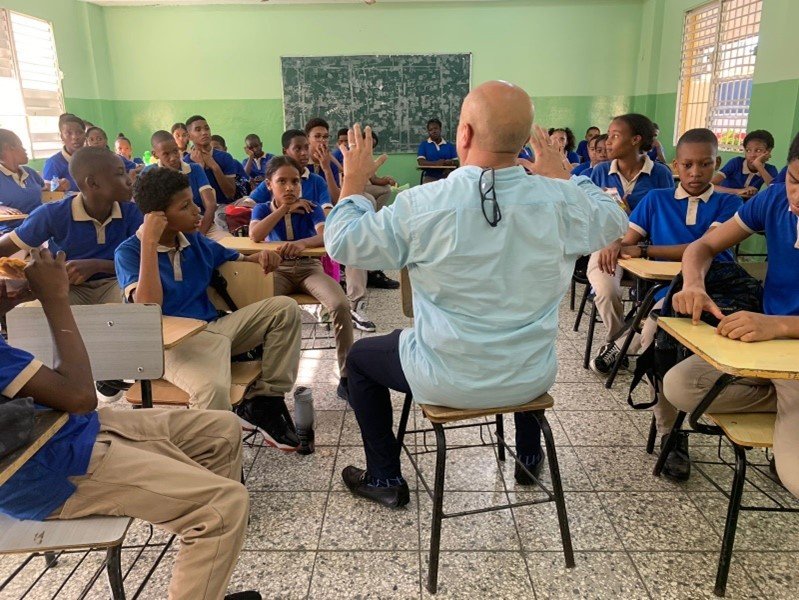Bread
During our first few weeks of living in Tours, France where we were studying French, I came home every day with two baguettes. Cheryl fussed at me because we could only eat one during a 24-hour period.
We had only learned a few vocabulary words, so I would go into the boulangerie across the street from our apartment and point to the baguettes and hold up my index finger to indicate that I wanted one baguette. The proprietor would smile and give me two loaves and take the money from my outstretched hand. I explained that to Cheryl, and neither of us knew what I was doing to get two baguettes.
Finally, I swallowed my pride and asked one of our missionary colleagues what I was doing wrong. He told me that If you held up your thumb, you received one loaf, and if you wanted two loaves you held up the thumb and the forefinger. So, the boulanger had only noticed my forefinger and gave me two loaves.
It was great living across the street from a boulangerie, but when we lived in Burkina Faso, the nearest bakery was four hours away, and it was not nearly as good as what we had bought in France. If we wanted bread where we lived out in the bush, Cheryl had to make it. She developed the art of making delicious home-made bread while using flour that had to be sifted to remove weevil eggs. It was the work of her hands and knowing just when to stop the kneading of the dough that made it taste so good.
As I have traveled the world for the past 47 years, there are many common things that I have noticed in every culture that I have visited. Every people group has some type of staple starch food that is a necessity of life. Of course, western cultures have more selection, so they usually have hundreds of choices of bread, potatoes, pasta, rice, cereals, and some more elaborate ones like couscous. Around the world the leading starch may be baguettes in France, injera in Ethiopia, corn tortillas in Guatemala, rice in Cambodia, ugali in Uganda, naan bread in India, polenta in Romania, or millet mush in Mali.
Today when Cheryl cooks for any of our 16 grandchildren, she can’t always be sure that they will eat what she cooks as some of them have some idiosyncrasies about what they will eat, but one thing she can be sure of is that they will put away her homemade waffles, pancakes, rolls, bread, and cheese bread.
The smell of bread baking. Hot bread with a bit of butter. Homemade cinnamon rolls. Hot cornbread. We all like bread—even though some must eat the gluten-free kind.
Jonathan Swift once said, “Bread is the staff of life.” It is true that bread or some similar staple is a large part of people’s diets around the world.
Jesus proclaimed in John 6, “I am the bread of life.” Because we have a greater need than a daily starchy staple, Jesus came into the world not to give us bread but to be bread in us. Our souls are hungrier than our bodies, and we desperately need someone to satisfy our soul. Only Jesus can do that.




